BMW 8 Series classic cars for sale
The BMW 8 Series (E31), produced from 1989 to 1999, stands as a high-tech grand tourer renowned for its advanced engineering and rare V12 and V8 engines. As BMW's flagship coupe, it introduced pioneering features and remains notable for its blend of luxury, performance and exclusivity.
Search results
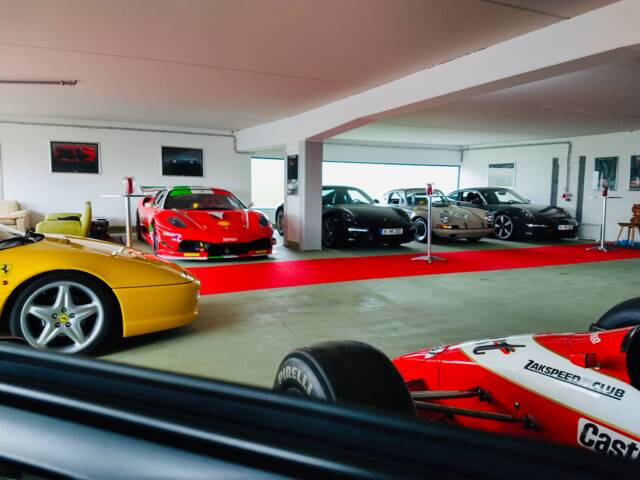
1992 | BMW 850Ci
*Restauriert*Motor Erneuert*Top*
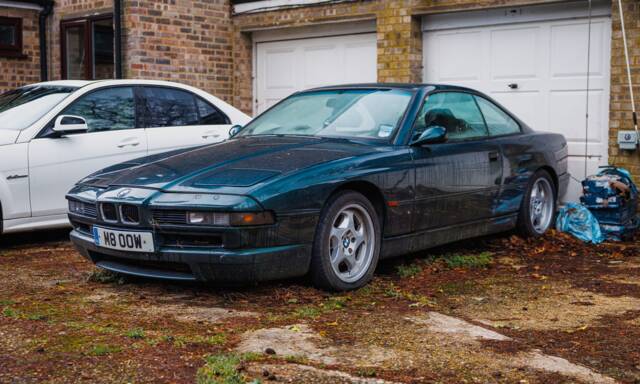
1994 | BMW 850CSi
1994 BMW 850 CSi
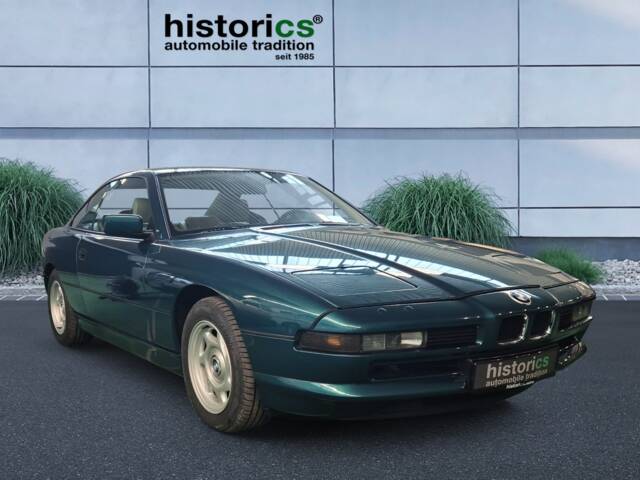
1991 | BMW 850i
850 i 6-Gang Schalter restauriert wenig Kilometer
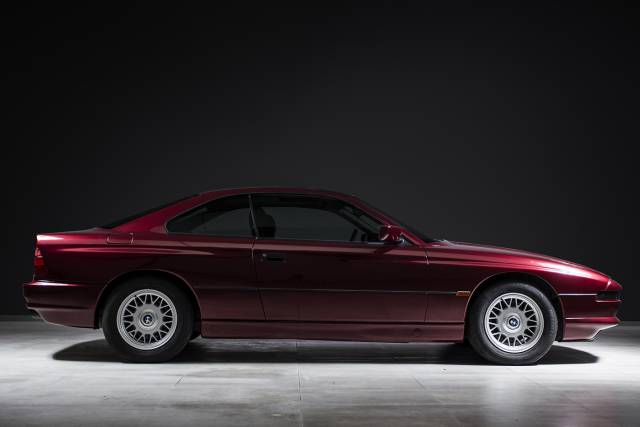
1993 | BMW 840Ci
BMW 840CI 4.0L V8-M60 286 HP
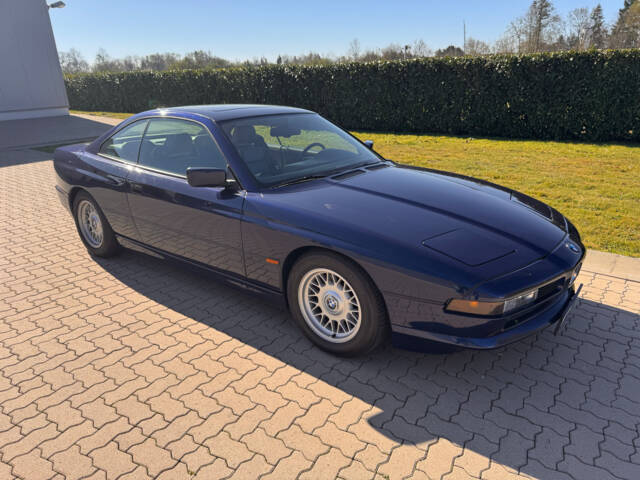
1993 | BMW 850i
Das bayerische Coupé der Königsklasse!
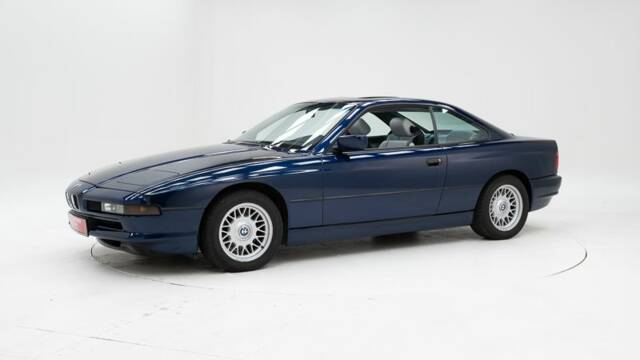
1991 | BMW 850i
1991 BMW 850i '91
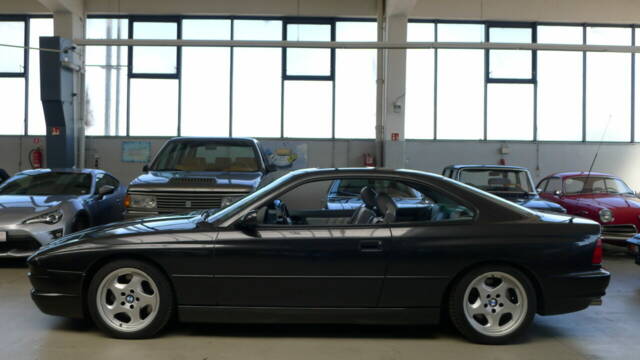
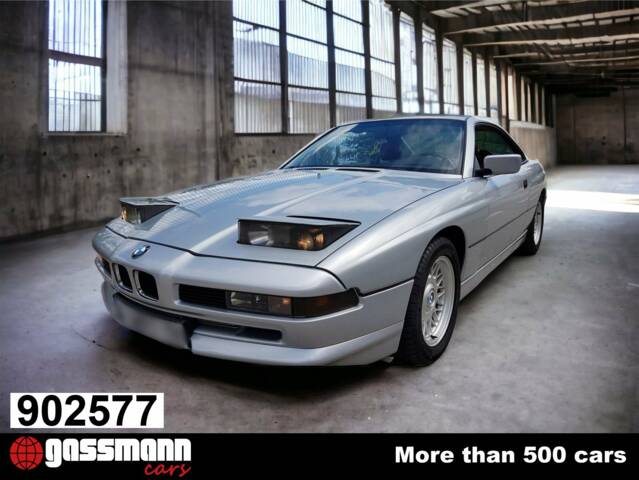
1991 | BMW 850Ci
850 Ci Coupe mehrfach verfügbar!
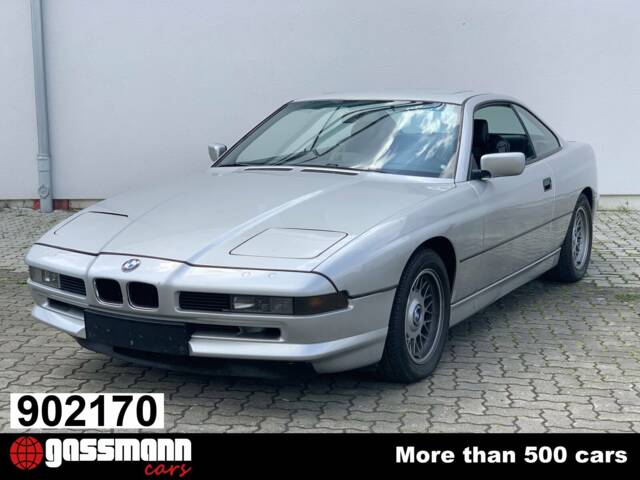
1991 | BMW 850Ci
850 Ci Coupe mehrfach verfügbar!
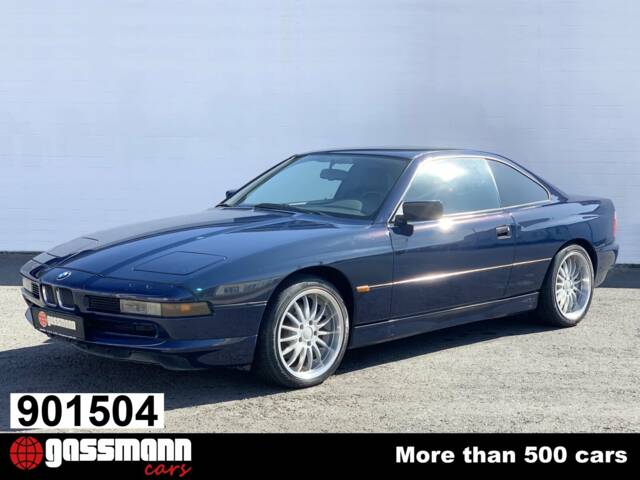
1991 | BMW 850Ci
850 Ci Coupe mehrfach verfügbar!
VAT is reclaimable
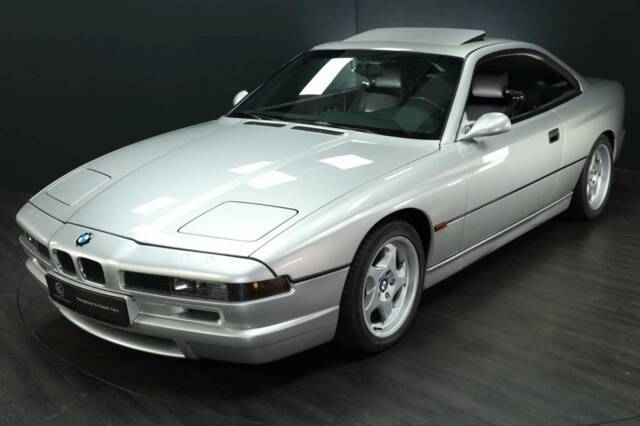
1993 | BMW 850CSi
BMW 850
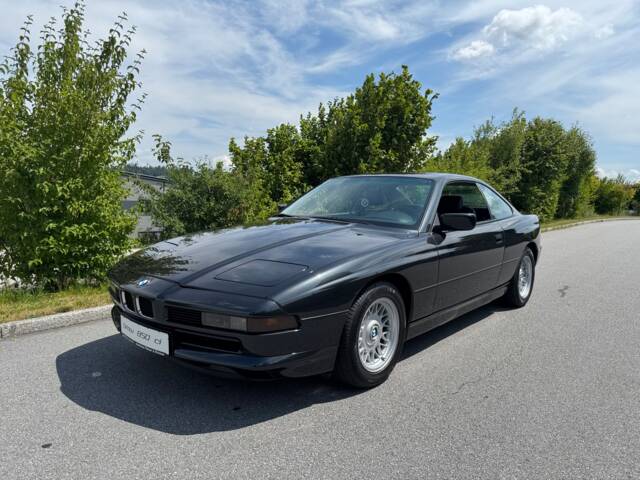
1991 | BMW 850i
12 Zylinder - 6 Gang Schalter
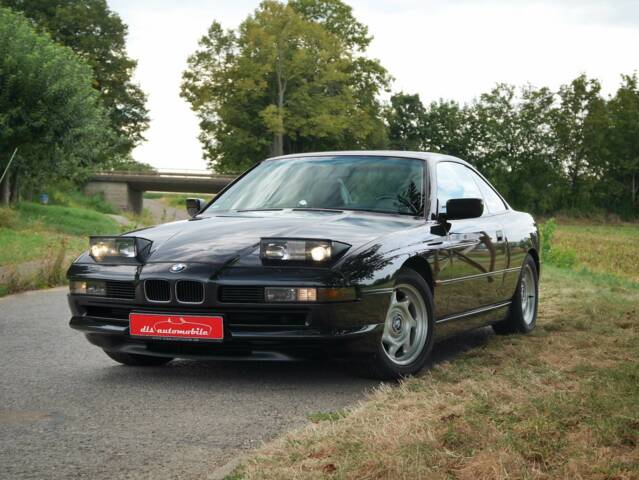
1997 | BMW 840Ci
BMW 840Ci // 6-Gang-Schaltgetriebe // orig. 37.100 km
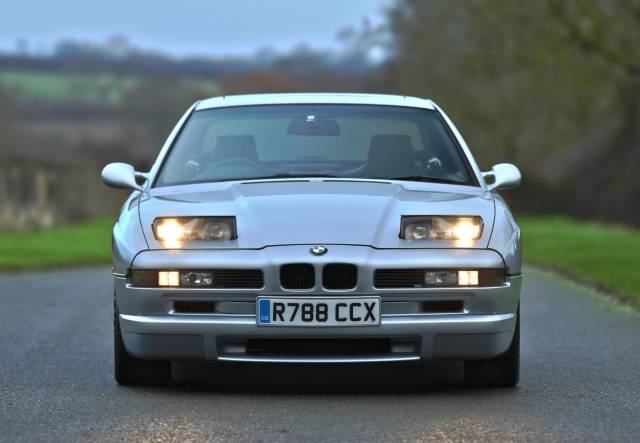
BMW 8 Series listing references from Classic Trader
Below you will find listings related to your search that are no longer available on Classic Trader. Use this information to gain insight into availability, value trends, and current pricing for a "BMW 8 Series" to make a more informed purchasing decision.
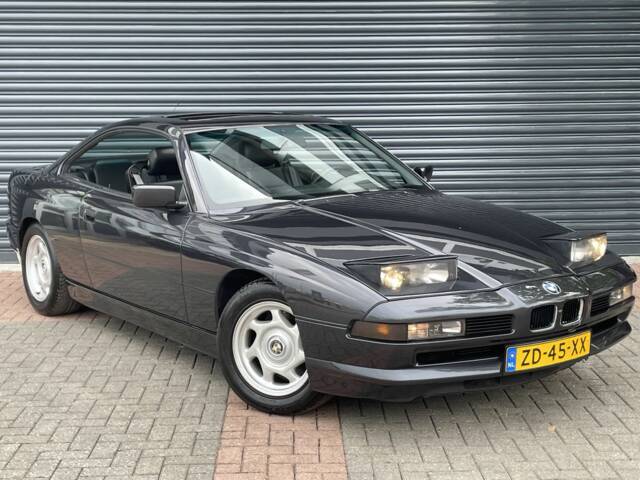
1991 | BMW 850Ci
BMW 850Ci | 1991 | Route 66 Auctions - For sale by auction. Estimate 13500 EUR
BMW 8 Series Classic Cars: Prices & Market Values
The market value of BMW 8 Series classic cars is primarily determined by the specific manufacturer code and variant, as well as technical condition, originality and mileage. Additional factors include rarity, history and documentation. A well-maintained, largely original vehicle with low, verifiable mileage and complete history including appraisals and documentation typically achieves significantly higher prices than a comparable vehicle with deferred maintenance, many modifications or unclear provenance.
BMW 8 Series: Market Prices & Value Trends
Based on sales data from the Classic Trader marketplace, the BMW 8 Series (E31) market in Europe shows a broadly stable-to-firm trend over the period from January 2021 to January 2026, with the strongest upward pressure concentrated on the rare 850CSi. Mainstream V12 cars such as the 850i and 850Ci (typically 1990–1995, around 300 hp) most often sit in a realistic market band of roughly €25,000 to €45,000, depending on mileage, history and condition, with occasional lower-priced project cars and higher “best-in-class” examples that should not be treated as the norm. The V8 840Ci/840i generally overlaps this range, commonly appearing from about €25,000 to €45,000, while some UK-priced examples indicate a similar position in £ terms. By contrast, the 850CSi (1992–1996) consistently commands a premium, most frequently trading around €80,000 to €110,000, reflecting low production numbers, flagship status and collector demand. For buyers, the market rewards originality and documented upkeep; for sellers, well-presented, provenance-backed cars remain the quickest to move.
History of the BMW 8 Series (E31)
BMW introduced the 8 Series (E31) at the 1989 Frankfurt Motor Show as its top luxury coupe, designed under Klaus Kapitza and engineered by a team led by chief designer Claus Luthe. Development began in 1984 with advanced use of CAD and wind tunnel testing, culminating in a striking, smoothly contoured body and extremely low drag coefficient (0.29). Unlike its predecessor, the 6 Series (E24), the 8 Series was positioned further upmarket, offering unique technical advancements and amenities. Production lasted until 1999, with less than 31,000 units made due to high costs and market headwinds from economic recession and oil price shocks. Its successor, the E63 6 Series, appeared in 2003.
Model Evolution and Range
Initially launched as the 850i with a 5.0-litre V12 (BMW M70B50), the 8 Series later welcomed the 850CSi (1992, S70B56 5.6L V12, 380 hp) developed in cooperation with BMW M, and the 840Ci featuring a 4.0/4.4-litre V8 (M60/M62 engines) producing 286–326 hp. Gearbox options included 6-speed manual or automatic transmissions. The legendary but ultimately shelved M8 prototype equipped with a 600 hp V12 was never released to the public. Specialised engineering such as multi-link rear axle and advanced electronics underpinned all models. The E31 was succeeded by the 6 Series E63 after production ceased in 1999.
Highlights of the BMW 8 Series E31
The E31 is distinguished by its pillarless coupe design, pop-up headlights, electronic drive-by-wire throttle, and CAN bus wiring—a first for series production cars. V12 power, ASC+T stability control, and multi-link rear suspension marked significant technical leaps. Interior features of the time included climate control, leather sports seats, high-end BMW Hifi systems and memory settings. Rarities among this model range, particularly Individual models and the 850CSi, amplify the desirability factor: only about 1,510 units of the 850CSi were built, predominantly for Europe.
Technical Data
Special Editions and Collectible Models
The BMW 850CSi stands out as the most exclusive production model, engineered by BMW M with a 5.6L V12, active rear axle steering, and unique bodywork. With only 1,510 units built, most for the European market, it features upgraded brakes, a unique aerodynamic package, and bespoke interior trims. Individual models, specified with rare paintwork and interior configurations direct from the BMW Individual catalogue, are also highly sought after among collectors. The unproduced M8 prototype, developed with a 600 hp V12, used some technology later adopted by the McLaren F1 and remains legendary among marque enthusiasts.
Weak Spots and Common Issues
Buyers should inspect E31s for sagging headliners, issues with the pop-up headlight mechanism, and pixel errors in dashboards and on-board computers. Electronics, including climate sensors and displays, are known for age-related faults. Klappscheinwerfer (pop-up headlights) drives are prone to failure, and both engine management modules and front suspension can require attention. Deteriorating seals and air conditioning leaks are also common. As all models are complex grand tourers fitted with many electronic amenities, expert inspection is advised before purchase.
Engine, Performance and Handling
The 8 Series set benchmarks in BMW's coupe lineup with rear-wheel drive, multi-link rear suspension and, in the 850CSi, active rear wheel steering for greater stability at speed. The V12s deliver a silky power delivery and are best enjoyed on long-distance journeys, offering 0–100 km/h in as little as 5.7 seconds (850CSi) and electronic speeds of up to 250 km/h. The big coupe's weight and technology lend themselves to stable, comfortable high-speed cruising rather than razor-sharp agility, with sportier dynamics reserved for the 850CSi's uprated chassis. Power steering that varies with road speed (Servotronic) and innovations like ASC+T traction control bring secure handling even with the potent V12s. - 850CSi: 5.6L V12, 380 hp, 6-speed manual, 0-100 km/h in 5.7–6.0 s
- 850i/850Ci: 5.0L V12, 296–300 hp, auto/manual, 0-100 in 6.9 s
- 840i/840Ci: 4.0–4.4L V8, 286–326 hp, 0–100 in about 7 s
Interior, Comfort, Exterior and Design
Designer Klaus Kapitza gave the 8 Series its signature wedge shape with pillarless bodywork, frameless glass and hidden pop-up ellipsoid headlights. Available in numerous metallic shades including Diamantschwarz and Calypsorot, with luxury interiors in Nappa or Buffalo leather. Many vehicles were produced with customisation from the BMW Individual programme, offering rare colours and unique trims. Interior options range from sport seats and multi-way electric adjustment with memory to extensive wood, aluminium or exclusive material trims. Optional equipment included electric sunroof, rear sunblind, high-end HiFi systems, and advanced climate control—top range for the era. The cab-forward dashboard provides excellent ergonomics for the driver.
Other Features and Distinctions
All E31 models were produced at BMW's Dingolfing plant, with Individual special versions ordered direct from the factory. Safety features for the class included dual airbags, side airbags in later models, reinforced safety cells and advanced ABS. The model’s excellent rust protection is noteworthy. All classic eligible E31s (over 30 years old) can be eligible for historic plates (H-Zulassung in Germany), providing tax and insurance advantages in some markets.
Summary
The BMW 8 Series (E31) combines advanced automotive technology, rare V12 and V8 powertrains, and distinctive design into one of the grandest coupes of the 1990s. Low production numbers, extensive equipment options and advanced engineering secure its reputation as a standout modern classic from Munich. With most models on the classic market being the E31, buyers and collectors are drawn by exclusive features, refined performance, and the prestige of owning a milestone in BMW’s grand touring legacy.













